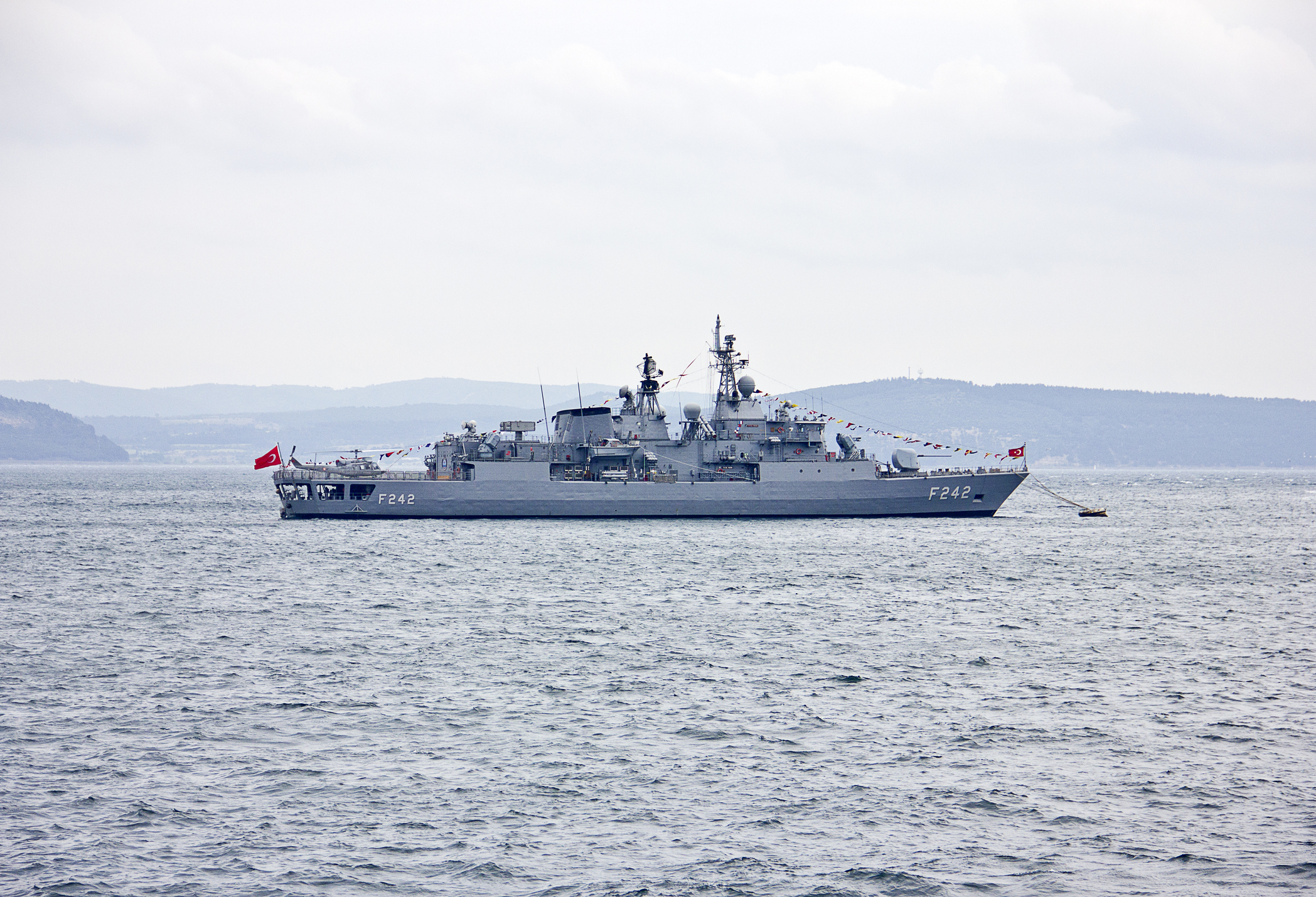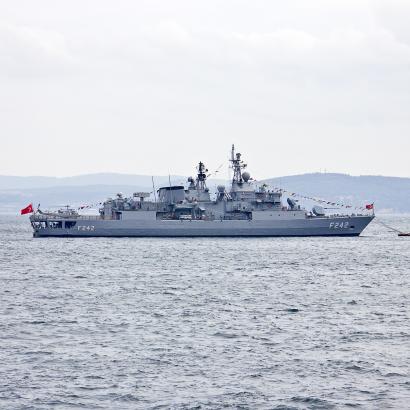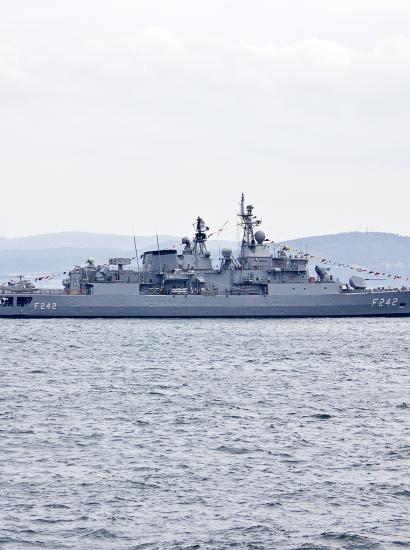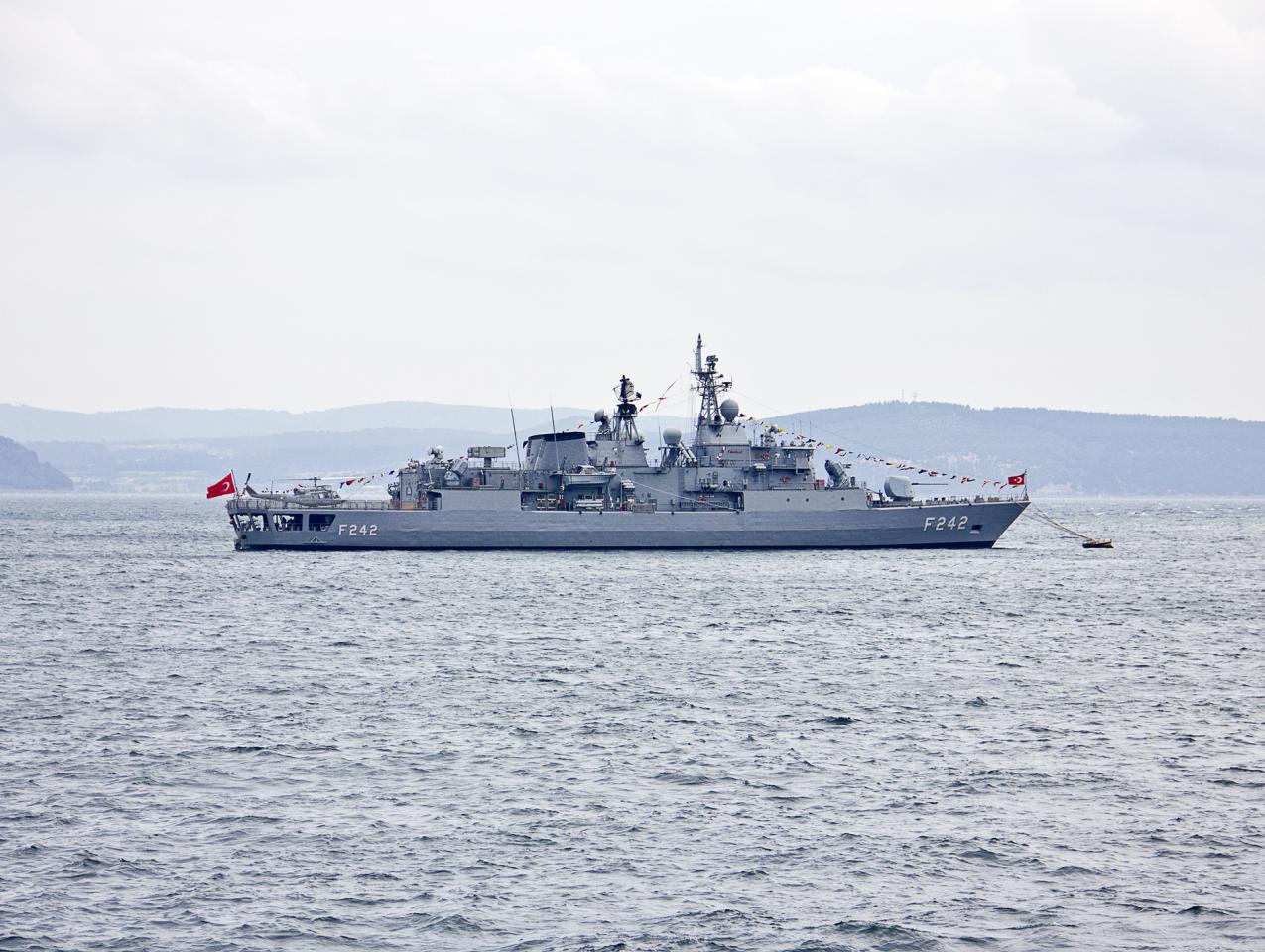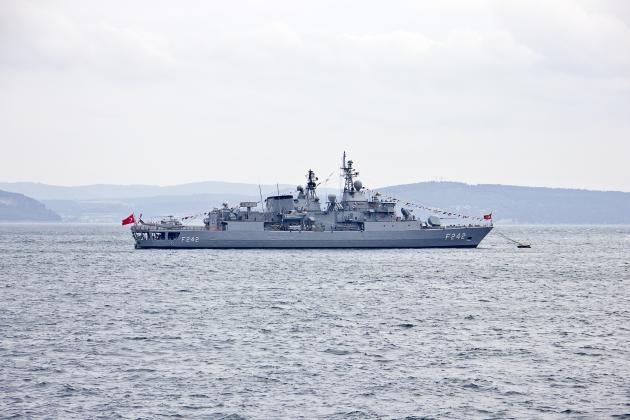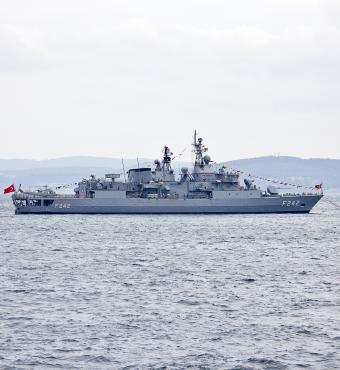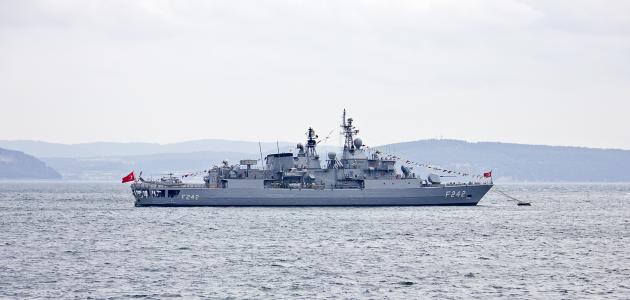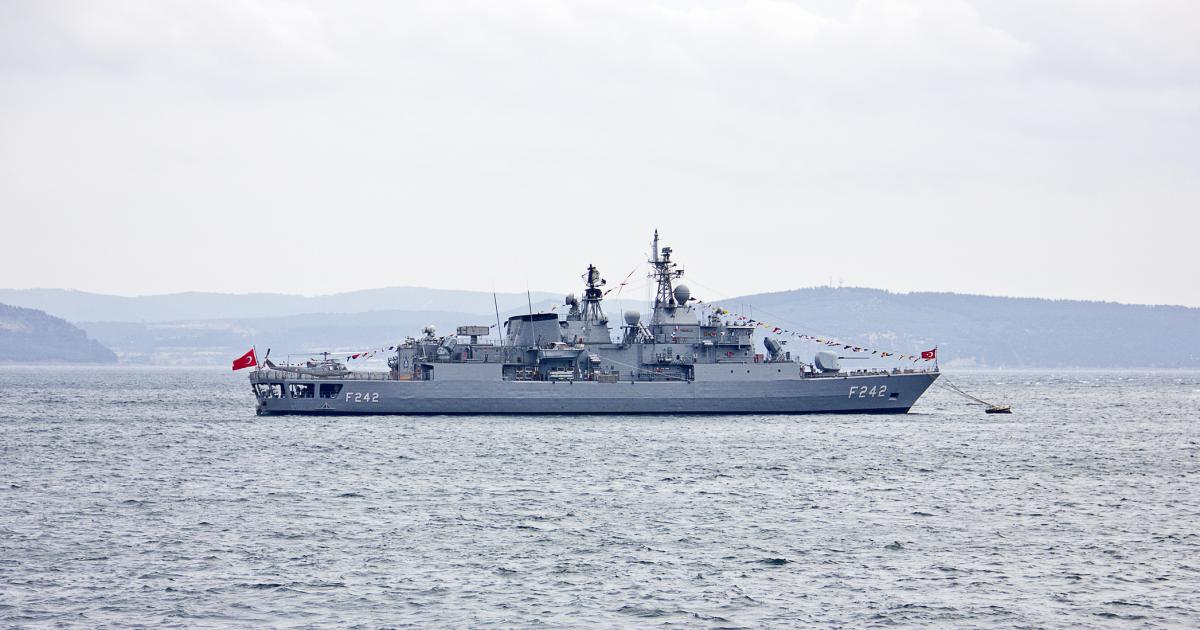Introduction
Signs of an arms race in the Eastern Mediterranean abound. Local and international press stories regularly speak of new acquisitions among the region’s militaries. The current pattern of reporting predates the October 7th attacks and the outbreak of full-scale war in Ukraine. The actual implications of this arms race, however, are not entirely clear. To some extent, the expansion and modernization of the region’s armed forces is an expression of both the times and necessity. The evolving security environment in the Eastern Mediterranean, coupled with the need to replace aging or obsolete systems, has compelled states like Greece, Turkey, Israel, Cyprus and Egypt to invest in their armies, navies and air forces. There are also very real tensions among these states. Central to these increased strains is Turkey and its growing ambitions as a regional and global power. Ankara’s determination to wield greater influence in the Eastern Mediterranean suggests that the potential for conflict in the region is not out of the question.
The East Med Arms Race: Underlying Factors
Militaries across the Eastern Mediterranean have faced two fundamental predicaments since the start of the new century. The first challenge each country in the basin continues to confront is an ever-evolving security environment. Several dramatic events in the last quarter century have threatened or undermined the region’s stability, including the War on Terror, the occupation of Iraq, the Arab Spring, the rise of ISIS, and now, Israel’s various security wars. Two additional factors also weigh upon the stability of the basin: a potential American strategic shift away from the region and the exploitation of natural gas deposits lying underneath the Mediterranean Sea. As a long-standing guarantor of the freedom of navigation in the basin, Washington’s slow pivot towards Asia places greater pressure upon regional states to secure their own maritime interests. Issues of territorial security and sovereignty have assumed still greater importance amid ongoing efforts to survey and tap large undersea gas deposits in the basin.
The heightened pace of technological innovation constitutes a second, and perhaps more important, predicament facing Eastern Mediterranean militaries. . Dramatic changes in warfare, particularly as a result of new weapon systems, threaten to undermine the effectiveness of armed forces throughout the region. Continuing advances in unmanned systems, aviation and munitions (particularly ballistic missiles) underscore the reality that most of the region’s arsenals are comparatively old and outdated. This is an especially precarious issue when one looks closely at the region’s navies. Several of the capital ships found in the Egyptian, Turkish, and Greek fleets began their service more than forty years earlier. Significant portions of the Greek and Turkish air forces similarly comprise aircraft dating back to the Vietnam era.
Turkey’s New Defense Posture and the Growth of East Med Militaries
There is no denying, however, that significant shifts in foreign policy have also influenced how some states have approached rearmament. In this regard, Turkey’s aggressive posture has played an outsized role in catalyzing this regional arms race. National security has long been at the forefront of Turkish politics. As a force with almost 400,000 under arms, the Turkish military ranks as the second largest in NATO. Other historical factors, particularly the lingering threat of terrorism, contribute to the importance of the country’s armed forces in national politics. Two relatively recent trends, however, have elevated the military’s place within the shaping of Turkish foreign policy. Over the last decade, a desire to challenge the balance of power in the Eastern Mediterranean physically has had a significant effect upon Ankara’s actions. Another, no less powerful, factor shaping Turkish behavior has been the recent emergence of its indigenous defense industry. Both of these dynamics undergird Ankara’s aggressive behavior in recent years, leading Turkey’s neighbors to respond in kind.
Turkish discontent with the territorial and political order in the Eastern Mediterranean is not altogether new. Over the last century, Ankara has disputed the land and sea borders it shares with its neighbors. Since the attempted coup of 2016, Recep Tayyip Erdoğan has grown more vocal in asserting that Turkey’s sovereign interests extend beyond the country’s sovereign territory. He has spoken most emphatically of the country’s interests in areas previously governed by the Ottoman Empire (which he has cryptically referred to as territories within Turkey’s “spiritual borders”).). Erdoğan’s embrace of the so-called Blue Homeland agenda represents the most vivid example of this turn within Turkish foreign policy. Advocates of this policy argue that Turkey possesses exclusive sovereign rights to significant portions of both the Aegean and Mediterranean Seas. Ankara’s embrace of this policy, which ignores the territorial sovereignty of islands, comes at the expense of Greek and Cypriot maritime claims.
A core factor enabling Ankara’s assertiveness has been its visibly maturing arms industry. Like the country’s revanchist tendencies, efforts aimed at growing the Turkish defense sector predate Erdogan’s ascendency. Since the mid-1970s, officials have lamented Ankara’s dependency upon foreign military hardware as a critical liability, one that chronically constrains Turkey’s foreign policy. Erdogan heeded these calls early on in his rule and, as a consequence, made the growth of the nation’s defense industry a hallmark of his rule. A coordinated media campaign has done much to elevate the significance of Turkey’s advances. During the first months of Russia’s full-scale invasion, Turkish officials and media outlets championed Ukrainian usage of Turkish-made TB-2 drones. Cable news frequently devotes significant amounts of time and attention to weapons tests and the launching of new warships (especially when they serve as a backdrop for a presidential event). Among the most elaborate ceremonies marking the development of Turkey’s defense industry is an annual series of aerospace fairs known as Teknofest. Erdoğan's visibility at many of these fairs lends significant credibility to the proposition that Turkey is an emerging regional and global power.
Greece and Cyprus have reacted sharply to Turkey’s efforts at rearmament. After suffering excruciating budget cutbacks due to the 2009 economic crisis, Athens has invested significantly in recapitalizing the country’s air force and navy. Amid plans to spend €25 billion over the next twelve years, the Greek armed forces plan to integrate several high-end platforms into its inventory, including some 20 F-35 fighters purchased from the United States. Cyprus meanwhile has signaled its own intent to undertake what its calls a “moderate arms buildup.” In addition to boosting its defense expenditures to nearly two percent of GDP, it has signed a series of military sales agreements with the United States. Both Greece and Cyprus also receive increased levels of training and other forms of security assistance from the United States. Neither Athens nor Nicosia has expressed any explicit desire to match or overtake Turkey’s growing arsenal. News reporting and media commentary, however, universally underscore the degree to which Ankara’s claims to the Aegean and Mediterranean factor into contemporary defense spending by Greece and Cyprus.
Along with Turkey, Egypt and Israel have pursued similarly ambitious recapitalization plans towards their respective militaries. Since coming to power in 2013, Egyptian President Abdel Sisi has splurged on defense spending, leading to massive purchases on the behalf of the navy and air force. Although Cairo has long relied upon foreign sales to augment its military power, Sisi’s recapitalization initiatives come at a time of increased Egyptian involvement in regional affairs. In addition to concerns over the future of Libya, the goal of securing access to natural gas deposits in the East Med has played a critical role in shaping Egypt’s defense outlook.
Ongoing challenges to its own territorial security play no less a role in Israel’s approach towards military modernization. Much has been written about the high-end capabilities of the Israeli Defense Force over the last two years. Yet with the Knesset on course to increase the military budget by 65%, the IDF plans to invest still more into its arsenal. Among the beneficiaries of this effort has been the Israeli navy, which is due to receive several new frigates in the coming years.
Flashpoints: Strategic Tensions in the Eastern Mediterranean
International observers initially expressed a cautious degree of optimism after the discovery of large natural gas deposits in the Eastern Mediterranean in the 2010s. A shared multilateral approach towards energy extraction and transit, some reasoned, would help “reinforce conflict resolution efforts in the Middle East and Cyprus” and bring about greater state stability among the region’s troubled nations. These early hopes have only partially come to fruition. A cooperative understanding on energy issues has helped forge a close trilateral relationship among Egypt, Greece and Cyprus. Mutual concerns over security have played a similar role in the making of equally warm ties between Tel Aviv, Athens and Nicosia.
Notably absent from each of these arrangements is Turkey. Although Egyptian-Turkish relations have improved in recent years, Cairo has opposed Ankara’s efforts at asserting a large and exclusive economic zone over the Mediterranean. Turkey’s antipathy towards Greece and Cyprus runs still deeper. Although Erdogan’s rhetoric has cooled towards both Athens and Nicosia in the past year, Ankara’s rejection of Greek and Cypriot maritime and territorial claims remains unaddressed. Among the current issues threatening to unsettle relations in the region are plans to lay a power cable connecting Greece and Cyprus with Israel. Ankara opposes the so-called Great Seas Interconnector on the grounds that it passes through Turkish waters. Past encounters between the Turkish and Greek navies in these same contested seas raise the possibility of a future military confrontation.
Syria’s fragile state further undermines the contemporary balance of power in the region. Since the fall of Bashar al-Assad in December, Turkey has exercised a visible role in supporting the new government of Ahmed al-Sharaa. News reports suggest that Ankara and Damascus stand poised to sign an expansive defense pact allowing Turkey to establish multiple bases inside the country. Israel’s reaction to these plans has been decidedly negative. In early April, IDF warplanes bombed multiple sites in central Syria, an act interpreted as a subtle warning directed at Turkey. Ankara appears to have received the message. Current reporting suggests Israel has responded positively to Turkish de-escalatory overtures. However, with a growing Israeli presence in Syria’s south, and no signs that Ankara plans to pull back from its defense commitments to Damascus, the risk of further hostilities endures.
The visible challenges at play in Syria and the East Mediterranean are indicative of trends that likely will produce further strains and concerns in the region. America’s diminishing interests in the Levant, as well as Russia’s weakened condition, has created room for local states to assert greater influence over the basin. Though mutual stakes in energy development and trade provide some incentive for regional cooperation, competing ambitions have grown more visible in recent years. The presence of several demonstrably weak states, be it Lebanon, Libya or Syria, undoubtedly will remain a source of great power and regional contestation for some time to come. Just how contentious the environment becomes depends in large measure on how far states in the region are willing to go in the pursuit of their interests. In this regard, the future of Turkish foreign policy assumes critical importance. Ankara has shown some willingness to moderate its approach towards its neighbors in certain matters of dispute. A closer look at Turkish rhetoric and interests suggests that Erdogan’s hegemonic ambitions remain as strong as ever. What is less clear is whether such designs reflect a kind of strategic posturing or constitutes a genuine plan to revise the fundamental balance of power in the region.
It is in this respect that the current military buildup in the region is worrying. Contemporary trends in warfare likely will continue to drive the recapitalization of the armed forces of the East Mediterranean for the foreseeable future. The success enjoyed by the Israeli and Turkish militaries, be it in terms of missile defense or drone technology, will likely catalyze increased defense spending across the region. It also may contribute to the growth of what one may call “war optimism.” Tel Aviv’s victories over its adversaries, as well as Ankara’s achievements in Libya, Syria and the Caucasus, may convince leaders in the region to see conflict as an instrument capable of delivering positively conclusive results. Growing confidence in the power and efficacy of the arsenals now taking shape in the region may likewise prompt dramatically disastrous results.
Ryan Gingeras is a professor in the Department of National Security Affairs at the Naval Postgraduate School and is an expert in modern Eastern European and Middle East history.







